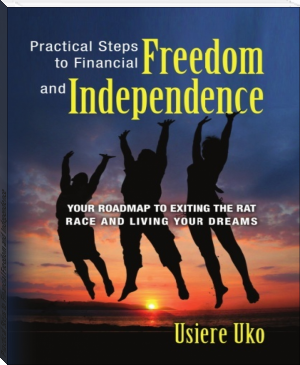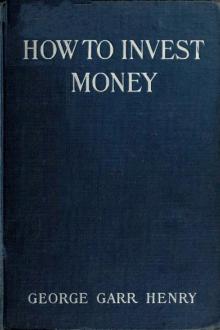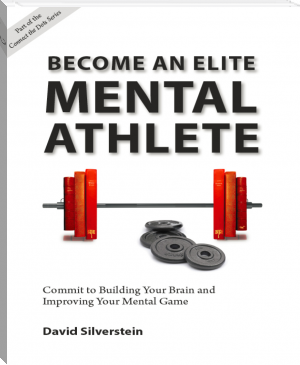Liber8 your Business - Laura Humphreys (to read list txt) 📗

- Author: Laura Humphreys
Book online «Liber8 your Business - Laura Humphreys (to read list txt) 📗». Author Laura Humphreys
Introduction
‘The price of anything is the amount of life you exchange for it.’ Henry David Thoreau.
Welcome to the world of the rich and free. If you are working hard in your business every day to make money and find yourself wondering where it’s all heading, you’ve come to the right place. By reading this book you are opening a door to a new way of looking at your business. A business can be a ticket to financial freedom and the life of your dreams. If you own your own business, you already have the ticket. This book shows you which train to catch to reach the true destination ... a life of total fulfilment.
This book will challenge your assumptions about your role in your business and will ask you to view yourself in a different light. It will show you how to re-engineer your business in a way that takes the emphasis off of your time and onto your planning ability. It will teach you how to see the future of your business and how to plan for that future. It will also give you practical business development strategies and tactics you can implement now.
First, I need to ask you:
Why did you go into business for yourself?
According to a Dun & Bradstreet* study, ‘businesses with fewer than 20 employees have only a 37% chance of surviving four years (of business) and only a 9% chance of surviving 10 years.’ Restaurants have only a 20% chance of surviving two years. Of these failed businesses, 90% closed because the business was not successful, did not provide the level of income desired, or were too much work for their efforts. The failure rate for new businesses was 70% to 80% in the first year and only about half who survived the first year would remain in business the next five years.
I spend much of my life working with and listening to small business owners, and I am now certain the true reason so many businesses fail (cease to exist) before year four is because people go into business for the wrong reason.
When I make presentations to business groups and ask why they chose to start a business, the answers are always the same. I wonder if you identify with one or some of these reasons people give:
I thought I could run a business better than my boss.
I was tired of working for someone else.
I wanted to be in control of my destiny, choose my own hours, and go on holiday whenever I felt like it.
I am good at something or trained in a particular field and have built my business around my skill set.
I had a good idea and believed I could make a business out of it.
I don’t know; it just sort of happened.
I want to help people, I’m not in it for the money (this response is particularly true of health practitioners).
Do any of these answers resonate with you? Have you really given much thought to why you are in business or what you really want out of it? Or have you stumbled into business as a reaction to your own personal circumstances without a true sense of purpose driving you?
It’s important to ask yourself; because your reasons for being in business will determine the way you approach it, which, in turn, will influence the ultimate success you have. For me, there are only two reasons why you would choose to start your own business: to make money and to make a difference.
Making Money
‘Being good in business is the most fascinating kind of art. Making money is art and working is art and good business is the best art.’
Andy Warhol.
Business is a financial game. People who are good at business understand that business is all about delivering returns to the shareholders. Why do you think the CEOs of large corporate earn multi-million dollar salaries? It’s because they know their job is to build a business with positive returns each year. They know how to drive a business machine to generate profit. They are hired as CEO’s for this ability. When I work with business owners, I encourage them to see their business through the eyes of a large corporate CEO. I get them to take their job as CEO and director seriously. The role of a CEO is to ensure that the business is planned and managed in a way that ensures it is consistently generating healthy returns to its shareholders.
A company director is legally obligated to act in the best interests of the Company. Owning the business doesn’t lessen that responsibility.
Making a difference
‘If every business could make an effort to be a force for good then a lot of the problems in the world could be solved.’
Richard Branson.
A business that cares only about money is a business without a soul. Your business is also there to fulfil a purpose, to add value and make a difference in the lives it touches, whether those people are customers, employees or beneficiaries of the higher purpose your business serves. There is a movement afoot, led to a degree by the champion of business idealism in action, Sir Richard Branson. In his book, Screw Business As Usual, Sir Richard encourages business owners to become a force for good. It is no longer okay to just be great at making money. You have to make a difference, too. And there’s a fun irony to this concept if you can really grasp it. If your business is truly focused on making a real difference to as many people as possible, you will attract more people to you. The more people you attract, the more successful you become and the more people you make a difference to. It’s a wonderful win/win concept and something I ask you to think about as you work through the ideas and exercises in this book.
Liber8 Your Business shows how to combine the concepts of making money and making a difference, so you build a business to not only make you rich but make you feel like a million dollars too!
Read on, the ride is only just beginning.
What is this book about?
Liber8 Your Business is a revolutionary way of planning and building your business to give yourself the absolute best shot at success. My definition of success is that your business has so much value that a buyer will want to pay a significant amount of money for it. Whether you choose to sell your business or not is a different matter. The key point is that if it is so valuable that someone else wants it, then it is successful.
Liber8 Your Business consists of eight stages to financial freedom through business:
Develop a Freedom Mindset.
Become a visionary.
Choose your exit strategy.
Set your end goal.
Plan backwards, using key milestones.
Reach your first milestone with an annual business plan.
Make it happen, from macro to micro.
Learn The Freedom Disciplines.
Liber8 Your Business is founded on the following basic beliefs:
The purpose of a business is to set the owner free.
“What’s money? A man is a success if he gets up in the morning and goes to bed at night and in between does what he wants to do”
Bob Dylan
Most of us crave freedom. Most want choice. Ultimately, I believe freedom is the core ingredient of happiness. Being free is to decide what you do each day without having to work to generate money. To be financially free, you have to generate wealth and a flow of passive income that increases to meet future needs and costs. For most, our business is our primary wealth creation tool. The real reason a business is better than a job is you are creating an asset. With a traditional job, you are helping create someone else’s asset. My definition of an asset is something that feeds you wealth.
There are only two ways to create wealth and freedom from your business. One is to create enough value someone will buy it. The other is to build an income stream that lets you spend minimal hours working in the business. I call this approach a leveraged business. This book shows how to steer your business to either or both these models.
Your business is a separate entity.
A business is a legal entity in its own right. Please hear me when I say a business is not you. I will say it again to be sure ... your business is not YOU. This can be a difficult concept for some business owners to take on board, especially if your business is primarily dependent on your clients buying your talent. Health practitioners, consultants, and freelancers, in particular, struggle with this concept. I have been debating with my osteopath for years about his business. He believes he can’t build a business that is not dependent on him. He says he has a special way of doing things that makes him unique from other osteopaths. His clients come to him for his methodology. This can’t be duplicated. Or so he keeps telling me. I don’t believe him, of course. I don’t believe any owner-operator who tells me their business is entirely dependent on them. It’s only true if you believe it to be true. The minute you challenge your own paradigm, you will be able to see that every business - and I mean EVERY business, including yours - can be leveraged. This book shows how.
If your business relies on you to generate business, it is not a business, it’s a job.
If you have created a business that relies on your presence to generate income and you don’t have a plan to change that situation, you haven’t created a business, you’ve created a job. In my view, it is a job if the business is not separate from you. And, if you’re like many other small business owner-operators in the early stage of their business, it’s probably a job that pays less than you should be paid, makes you work longer hours, gives you more stress, and doesn’t let you take enough holidays. Frankly, if you were an employee working for someone else you’d probably file a lawsuit for the way this business treats you. This book shows how to plan for a business in the true sense ... one that does not rely on you.
You will never get rich exchanging time for money
In the Author’s Note, I told you I resigned from an advertising agency and started freelancing. It didn’t take me long to realise I was never going to get rich exchanging time for money. There were simply not enough hours in the day, days in the week, or months in the year. Even if I worked every hour in the year I would still not be wealthy and would probably harm myself trying. I found a better way, a path to financial freedom. This book shows you how to do the same.
Your business is like a shed
If I asked you to build a shed, what would you do? You would do what you do with any project, right? You’d get a picture of how the shed is supposed to look. You’d look at the plans and follow the instructions. You’d get the right tools ready and you might even find someone to help build it, someone with more expertise in this type of construction.
The distinction here is when you’re building a shed you know what it looks like; it’s a project. And a business is a project too. It’s not something that’s forever. It’s going to have an end. Just like any project, if you know what the end looks like, you can devise the plan to get there. It’s a simple concept, but many people don’t start a business that way. Most start a business with no idea where it’s going.





Comments (0)